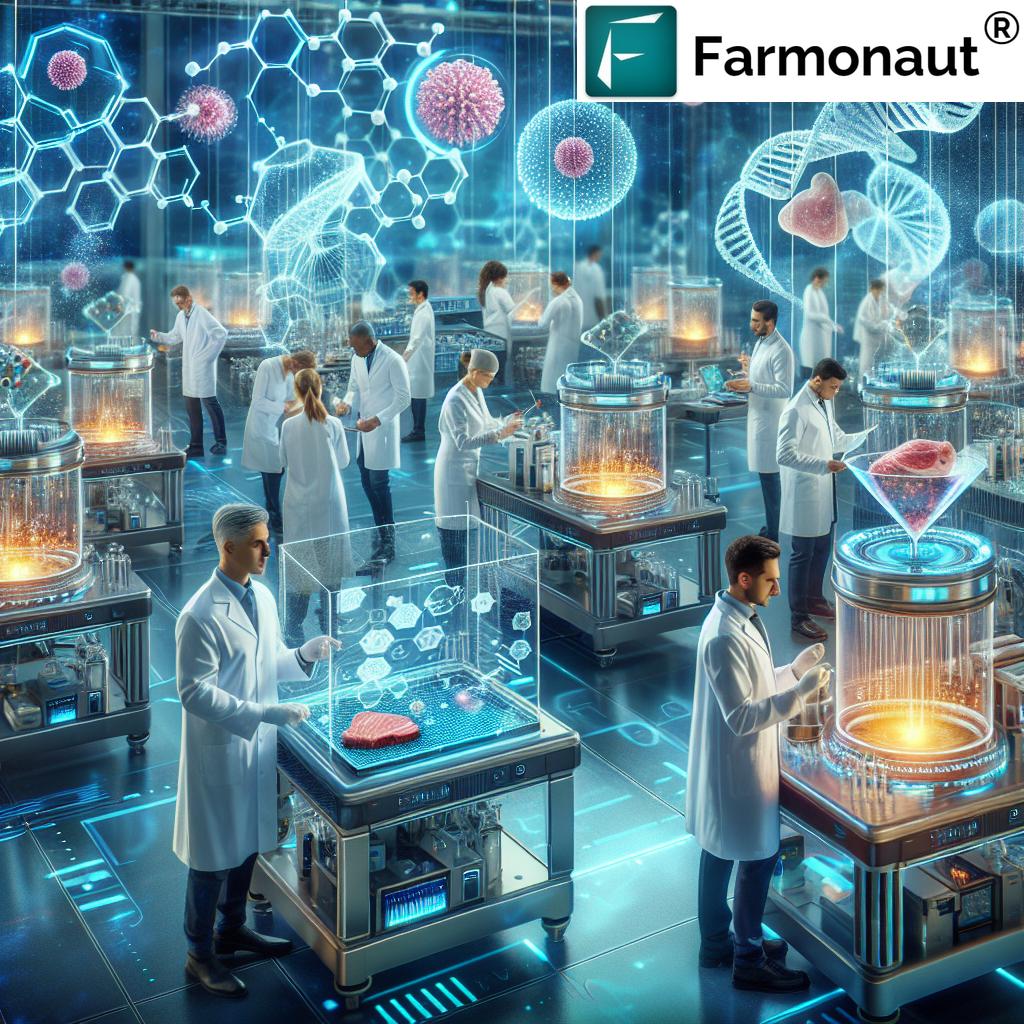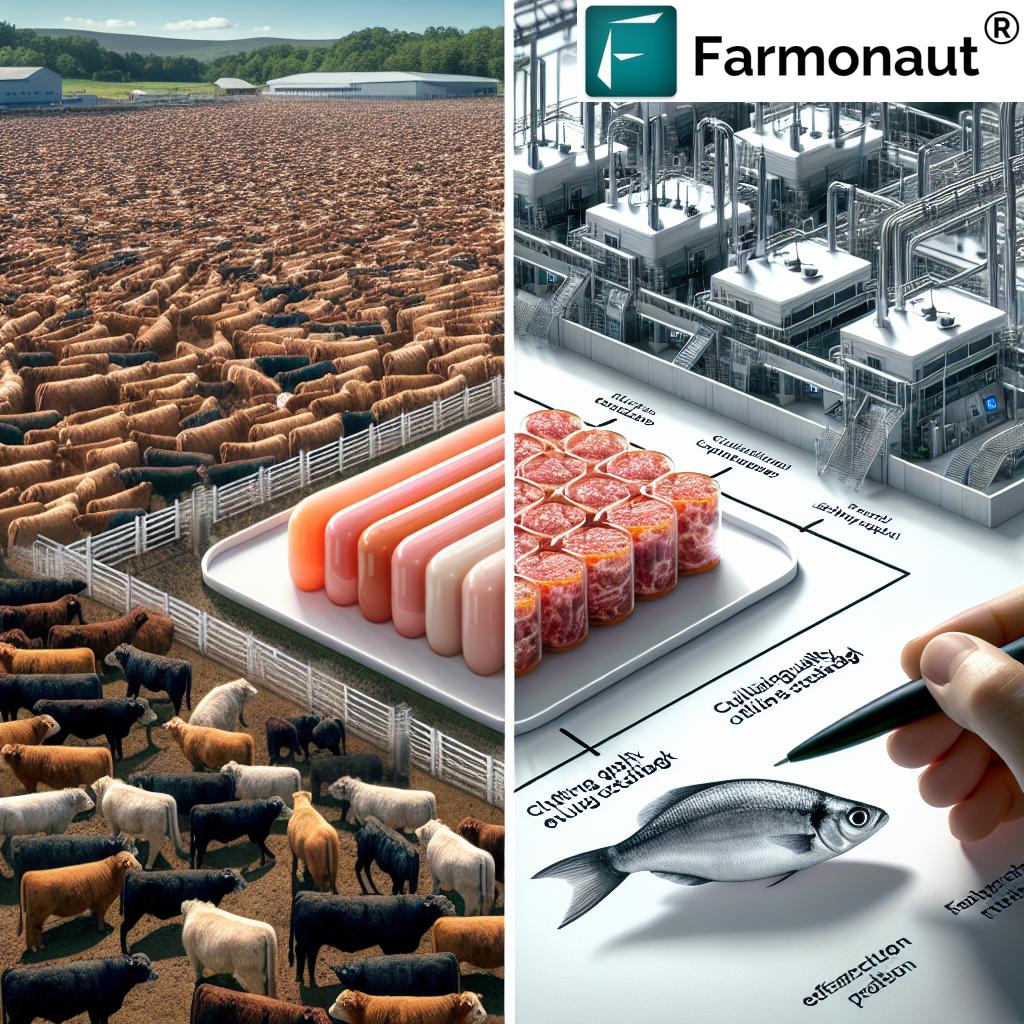Revolutionary Breakthrough: Sallea’s $2.6M Funding Ignites Sustainable Protein Future with Edible Scaffolds for Premium Lab-Grown Meat

In a groundbreaking development for the sustainable protein industry, Zurich-based deeptech startup Sallea has secured an impressive $2.6 million in pre-seed funding. This significant investment marks a pivotal moment in the realm of cellular agriculture and food technology, promising to revolutionize the production of cultivated meat and usher in a new era of eco-friendly protein alternatives.
Sallea’s Innovative Approach to Cultivated Meat Technology
At the heart of Sallea’s breakthrough is its pioneering work on edible scaffolds for lab-grown meat. This innovative technology addresses one of the most significant challenges in the cultured meat sector: replicating the complex texture and nutritional profile of traditional animal-based proteins.
- Enhanced texture for premium lab-grown steaks and fillets
- Improved nutritional content in cultivated meat products
- Potential to revolutionize the entire alternative protein landscape
The company’s focus on creating high-quality, premium lab-grown steaks sets it apart in an increasingly competitive market. By developing edible scaffolds that can support the growth of complex meat structures, Sallea is paving the way for lab-grown meat that not only tastes great but also closely mimics the mouthfeel and nutritional benefits of conventional meat.
The Visionaries Behind Sallea
Founded by Dr. Nicole Kleger and Simona Fehlmann, Sallea brings together a powerful combination of scientific expertise and entrepreneurial vision. The founders’ backgrounds in bioengineering and business development position the company at the forefront of sustainable protein innovation.
Dr. Nicole Kleger, with her extensive research experience in tissue engineering, leads the scientific efforts at Sallea. Her work is fundamental to the development of the company’s proprietary edible scaffold technology.
Simona Fehlmann brings her business acumen to the table, ensuring that Sallea’s groundbreaking technology translates into a viable and scalable commercial product.

The Market Potential for Sustainable Protein
The timing of Sallea’s emergence couldn’t be better. The alternative protein market is projected to exceed a staggering $370 billion by 2030, highlighting the immense potential for growth and innovation in this sector. As consumer demand for sustainable and ethical food options continues to rise, cultivated meat is positioned to play a crucial role in meeting these evolving preferences.
Key market drivers include:
- Growing environmental concerns related to traditional livestock farming
- Increasing awareness of animal welfare issues
- Rising global protein demand due to population growth
- Advancements in biotechnology and food technology
Looking to leverage cutting-edge technology in agriculture? Explore Farmonaut’s Satellite API for advanced agricultural insights.
Implications of Sallea’s Funding Success
The $2.6 million pre-seed funding is more than just a financial boost; it’s a vote of confidence in Sallea’s vision and technology. This cellular agriculture funding will enable the company to:
- Expand production capabilities
- Forge strategic partnerships within the industry
- Accelerate research and development efforts
- Scale up operations to meet anticipated demand
By addressing the current limitations in cellular agriculture, particularly in terms of texture and nutritional content, Sallea is poised to become a key player in the sustainable food tech ecosystem.
The Role of 3D Food Printing in Cultivated Meat Production
One of the most exciting aspects of Sallea’s technology is its potential application in 3D food printing. This innovative approach to food production could revolutionize how we create complex meat structures, allowing for unprecedented customization and efficiency in cultivated meat production.
Benefits of 3D food printing in cultivated meat production include:
- Precise control over the structure and composition of meat products
- Ability to create complex shapes and textures
- Potential for personalized nutrition through custom-designed meat products
- Reduced waste in the production process
Interested in precision agriculture? Check out Farmonaut’s mobile app for iOS  and Android
and Android 
Challenges and Opportunities in the Cultured Fish Sector
While much of the focus in cellular agriculture has been on beef and poultry, the cultured fish sector presents unique challenges and opportunities. Sallea’s edible scaffold technology could be a game-changer in this area, potentially enabling the creation of complex fish fillets that closely mimic their wild-caught counterparts.
Key considerations for cultured fish production:
- Replicating the delicate texture and flavor profiles of various fish species
- Addressing the nutritional challenges, particularly in terms of omega-3 fatty acids
- Scaling production to meet the growing global demand for seafood
- Navigating regulatory landscapes for novel seafood products
The Future of Alternative Protein Production
As food tech startups like Sallea continue to innovate, the future of alternative protein production looks increasingly bright. The potential benefits of this technology extend far beyond just creating convincing meat alternatives; they include:
- Significant reduction in greenhouse gas emissions associated with traditional livestock farming
- Conservation of land and water resources
- Improved food security through localized production capabilities
- Enhanced animal welfare by reducing reliance on industrial farming practices
For comprehensive agricultural solutions, explore Farmonaut’s web app: 
Conclusion: A Sustainable Protein Revolution
Sallea’s successful funding round and innovative approach to edible scaffolds for lab-grown meat mark a significant milestone in the journey towards a more sustainable and ethical food system. As the company moves forward with its plans to expand production and forge strategic partnerships, it stands at the forefront of a cultivated meat technology breakthrough that could reshape the global food landscape.
The implications of this development extend far beyond the realm of food technology. By providing a viable, scalable solution for producing high-quality cultured meat and fish, Sallea is contributing to a larger movement towards sustainability and responsible resource management.
As we look to the future, the success of companies like Sallea will play a crucial role in addressing some of the most pressing challenges facing our planet, from climate change to food security. The $2.6 million pre-seed funding is not just an investment in a single company, but a vote of confidence in the potential of cellular agriculture to create a more sustainable and equitable food system for generations to come.
For developers interested in integrating agricultural data into their applications, check out Farmonaut’s API Developer Docs.